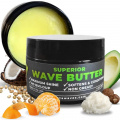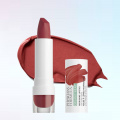Home Remedies for Tonsillitis: 12 Easy Ways to Soothe Your Throat
Tonsils can cause severe pain and uneasiness if left untreated. Use home remedies for tonsillitis and soothe your sore throat before the infection gets severe.

When you have tonsillitis, your tonsils become swollen and cause discomfort. It can be hard to swallow as some people have an uncomfortable feeling in their throat (1). Home remedies for tonsillitis can help you feel better, although they can help ease the symptoms of the infection. This article talks about the various home remedies you can use as a tonsillitis cure and their preventive measures. You will also read about this disease in general and its cause. Stay away from the infection as much as possible and take preventive measures. For this, you should wash your hands regularly and ensure you keep your surroundings clean. Home remedies could help against a mild infection, but you should consult a doctor before taking any medication.
What Is Tonsillitis?
Before diving into the tonsillitis infection, take a minute to understand the body part it affects. The tonsils are a pair of oval-shaped lymphoid tissues located at the back of the throat, one on each side. They store the white blood cells, which fight idleness and increase your immunity (1).
There are three main types of tonsils in the body:
1. Palatine Tonsils
They are located on each side of the back of the throat. You see these when you open your mouth and take your tongue out in front of the mirror. They are visible as two round things at the back of the mouth. These defend against bacteria and viruses that enter the mouth and throat (2).
2. Adenoids
Adenoids are another type of tonsils located higher up in the throat, behind the nose. They are not visible like the palatine tonsils. Adenoids are primarily present in children and tend to shrink in size as a person grows older. They play a role in fighting infections, particularly in young children (2).
3. Lingual Tonsils
Lingual tonsils are located at the base of the tongue, in the back part of the tongue, near the throat. They are made up of lymphoid tissue and assist in protecting against infections (2). They help trap and filter out harmful bacteria, viruses, and other microorganisms. The tonsils contain immune cells, including lymphocytes, responsible for identifying and fighting off potential infections.
An infection of the tonsils that causes them to inflame is called tonsillitis. Two oval-shaped lymphoid tissues are located at the back of the throat, one on each side. A viral or bacterial infection most commonly causes tonsillitis. It is generally the Palatine tonsils that get affected and cause problems. Adenoids are often removed in childhood, especially in children prone to allergies (1).
Common flu viruses, such as the rhinovirus, influenza, or Epstein-Barr virus, typically cause viral tonsillitis. Streptococcus pyogenes usually causes bacterial tonsillitis. It is also known as group A streptococci and is responsible for strep throat (3).
Occasionally, recurrent or chronic tonsillitis may require surgical removal of the tonsils, known as a tonsillectomy. It is a remedy for swollen tonsils when nothing else works. This procedure is generally reserved for individuals with severe or persistent symptoms that significantly impact their quality of life.
Who Gets Tonsillitis Most Often?
Tonsillitis is an inflammation of the tonsils, two small, round masses of tissue at the back of the throat. People who are prone to allergies could get tonsils frequently. It is also most common in children during flu seasons. Many adults are also prone to tonsillitis due to lifestyle habits or low immunity.
Here are some of the people who are more likely to get tonsillitis:
1. Children And Infants

Children are more likely to get tonsillitis than adults because their tonsils are larger and more exposed to bacteria. Children also have trouble refraining from sour or cold things and often put dirty hands in their mouths. All these habits make them more susceptible to tonsillitis. They need home remedies for tonsillitis as you cannot give them many medicines (4).
2. Family History of Tonsillitis
The younger generation is more prone when many of the same family members get this issue. While not much evidence relates to the genetics behind tonsillitis, this is an observed trend.
3. Low Immunity
People with weak immune systems can easily catch infections. Someone with HIV/AIDS or cancer is likely to get tonsillitis (5).
4. Smokers
Smoking can irritate the tonsils and make them more susceptible to infection. The various chemicals in cigarettes can cause irreparable damage to your throat lining, exposing it to infection (5).
5. Crowded Or Unsanitary Conditions
People who live in crowded spaces or unsanitary conditions are more likely to be exposed to bacteria that can cause tonsillitis. If one person in these surroundings gets the infection, it is common for the infection to spread due to the proximity and lack of hygiene protocols (5).
If you think you have tonsillitis, it is crucial to see a doctor to get a diagnosis and treatment. Tonsillitis self-care includes gargling and drinking warm water. Professional treatment for tonsillitis usually includes antibiotics to kill the bacteria causing the infection. In some cases, surgery may be required to remove the tonsils.
What Are the Symptoms of Tonsillitis to Look out for?
The symptoms of tonsillitis can vary depending on the cause (viral or bacterial) and the individual. Here are the common symptoms to look out for:
1. Sore Throat
Tonsillitis typically causes a severe sore throat, which can be persistent and worsen when swallowing. The throat may appear red and swollen. Some people may have itching in the ear and throat, along with a dry cough (6).
2. Swollen Tonsils
The tonsils usually become enlarged and may be covered with a white or yellow coating or have visible pus-filled spots. A hot compression can give you swollen tonsil relief (6).
3. Difficulty Swallowing
Due to inflammation and swelling, swallowing can be painful and uncomfortable. Hard food may also poke the tonsil and cause more pain (6).
4. Tonsil Enlargement
The tonsils may appear larger than usual and obstruct the throat's back. They also obstruct breathing if the throat gets inflamed as well (6).
5. Fever

Tonsillitis often causes a fever, especially in bacterial cases. The body temperature may rise above 100.4°F (38°C) (6).
6. Headache And Body Ache
Many people with tonsillitis experience headaches, muscle aches, and overall body discomfort. Pain over the eyebrows could also come with this illness (6)
7. Fatigue
Tonsillitis can cause significant fatigue and general weakness or malaise.
8. Enlarged Lymph Nodes
The lymph nodes just below the jawline, in the neck, may become swollen and tender to the touch (6).
8. Bad Breath
Foul-smelling breath, also known as halitosis, can be present due to the infection and buildup of bacteria and debris in the throat. Home remedies for tonsillitis and other nasal infections include regular gargles(6).
9. Hoarse Voice Or Changes in Voice
Tonsillitis may affect the vocal cords, leading to hoarseness or changes in the voice (6).
10. Ear Ache
In some cases, the pain from the infected tonsils may radiate to the ears, causing discomfort or ear pain. You could also experience partial loss of hearing and nasal congestion (6).
12 Ways to Treat Tonsillitis at Home
Tonsillitis is painful if left untreated. Most people take this issue lightly, but it escalates sooner than you know. But, it is treatable at home in the early stages. While home remedies for tonsillitis can help alleviate the symptoms, it's important to note that you must visit a doctor when you think you need it, especially in cases of bacterial tonsillitis.
Here are 12 home care strategies that may provide relief:
1. Take Rest

To treat tonsillitis at home, get plenty of rest. It will support your immune system in fighting the infection and promote faster recovery. Sleeping is the best solution, as it puts the body to rest. Sleep is also when your body repairs any cell and tissue damage. It fights against any foreign infection during sleep and ensures you heal faster (7).
2. Stay Hydrated
You must drink lots of fluids, such as water, herbal tea, and warm soups, as tonsillitis treatments. Hydration helps soothe the throat, keeps the body hydrated, and supports healing. Taking plenty of water also helps to flush out toxins from the body. You should also have water if you are on any medication. Also, it flushes out the by-products from your system (7).
3. Gargle with Warm Salt Water
Mix half a spoonful of rock salt in a glass of warm water. Gargle with this mixture several times daily to help reduce swelling and relieve throat discomfort. The salt in the saline water draws out excess liquid from inflamed tonsils through osmosis. With no medium to survive, the bacteria or virus eventually dies. This is one of the age-old home remedies for tonsillitis and works for a mild infection (7).
4. Use a Humidifier
Use a humidifier or cool-mist vaporizer in your room to add moisture to the air. It can help soothe the throat and alleviate dryness and irritation. When your nasal passage is lubricated, the body produces enough saliva to trap microorganisms before they cause infection (7).
5. Warm Compress
Applying a warm compress or heating pad to the neck area can help relieve pain and reduce inflammation. Ensure the compress is not too hot to avoid burns. The sudden arrival of heat to a specific body part signals the brain to send more blood to that region. It also brings the required white blood cells to fight infection and work as a tonsillitis cure (7).
6. Over-the-counter Pain Relievers
Painkillers and anti-inflammatory drugs may help but should never be taken without guidance. These medicines for tonsillitis may offer temporary relief but do not cure the problem at its source. Follow the discussed dosage instructions and consult a healthcare professional (7).
7. Honey And Warm Water

Mix a tablespoon of honey with warm water or herbal tea. Honey has soothing properties and can help relieve throat irritation. Honey also has antimicrobial properties, which can work against the microorganisms causing tonsillitis. It is one of the best home remedies for tonsillitis. Note that honey should not be given to children under one year of age. For tonsillitis, tea with honey is also an excellent combination (7).
8. Lozenges Or Throat Sprays
Use over-the-counter throat lozenges or sprays that contain soothing ingredients like menthol or benzocaine. These can temporarily numb the throat and provide relief. These are, again, not for long-term use, as they do not target the cause but give temporary relief (7).
9. Avoid Irritants
Avoid smoking altogether and stay away from secondhand smoke. You should also avoid other irritants, like chemical fumes. All these can irritate the throat more and prolong the healing process. Most of these elements dry the throat and decrease music production. All these things make your throat an open field for infection (7).
10. Consume Soft, Soothing Foods

Eat soft, easy-to-swallow foods like soups, broths, mashed potatoes, yogurt, and smoothies. Food with larger quantities of water will help your throat and make it easier to digest. In tonsillitis, foods to avoid include spicy, acidic, or rough-textured foods that may irritate the throat. Acidic food dries out of the mouth and will result in the same issue again (7).
11. Cold Treats
Sucking on ice chips, popsicles, or cold beverages can help numb the throat and relieve pain and discomfort temporarily. It also helps by promoting more blood flow in the area. But you must remember to use clean ice to avoid secondary infections. Some people may not benefit from this, as the cold could worsen the situation (7).
12. Practice Good Hygiene
Practice good hygiene by frequently washing your hands. When coughing or sneezing, you should use a cloth to cover your mouth and nose. Avoid close contact with others as it can break the spread of infection. You can also wear a mask during flu season to make sure to stay away from infections in the air (7).
Remember, these home remedies for tonsillitis provide temporary relief and support your recovery. If symptoms continue, you must seek medical attention for a proper diagnosis and appropriate treatment.
The below-mentioned tips will help you stay away from this infection:
1. Wash your hands frequently. Washing hands with medicated soap and water prevents the spread of bacteria. However, you must wash your face frequently and not touch your eyes or nose.
2. Avoid coming in close contact with people who are sick. Wear a mask if you must be around someone with a sore throat and cough.
3. Sleeping the required amount of time in a day heals your body and keeps your immune system strong. It is better to incorporate sleep hygiene to avoid an infection in the first place.
4. Eating nutrient-rich food strengthens your immune system. It nourishes your body and helps it fight illness. A healthy diet also helps keep the body weight in check ensuring you have lesser diseases.
5. Smoking can irritate the tonsils and make them more susceptible to infection.
6. Avoid foods that can cause infection. People who know they have issues with cold or sour food should not indulge in it. Following the prevention is better than a cure policy goes a long way in life.
At What Stage Should You Consult the Doctor?
It is advisable to consult a doctor if you have a throat itch. You should also see a doctor if the home remedies for tonsillitis do not work and your symptoms worsen or persist for a few days. It's crucial to seek medical attention in the following situations:
1. Severe Symptoms
The infection could worsen if you experience severe throat pain or redness. It could also be the signs of a secondary infection because the first one did not cure properly. At this point, it is essential to seek immediate medical attention (6).
2. High Fever
Your infection could worsen if you have a persistent high fever (above 101°F or 38.3°C) that doesn't respond to over-the-counter fever reducers. You must immediately seek medical help. You may even need a swab test to determine the specific antibiotic for the infection (6).
3. Recurrent Or Chronic Tonsillitis
If you have frequent episodes of tonsillitis or if your tonsillitis symptoms persist for a long time, it's a good idea to consult a doctor to understand the underlying cause and discuss potential treatment options (6).
4. Suspected Bacterial Tonsillitis
If you suspect bacterial tonsillitis, seeing a doctor for the proper diagnosis and antibiotic treatment is essential. Bacterial tonsillitis caused by Streptococcus pyogenes (group A streptococci) requires antibiotics to prevent potential complications (6).
5. Difficulty Breathing Or Swallowing
Some people may experience significant difficulty breathing or swallowing. It's critical to seek immediate medical attention, as they may have a severe condition requiring urgent intervention (6).
When you visit a doctor for tonsillitis, they will typically physically examine your throat and neck. They may also ask about your medical history and inquire about your symptoms. Sometimes, they may perform a swab test on the back of your throat to check for bacteria. You should also tell them about the tonsillitis home remedies you have used (1). Once the doctor confirms a bacterial infection, they will prescribe appropriate antibiotics to treat the infection. You must complete the entire course of antibiotics as prescribed, even if you start feeling better before finishing the medication (1). Some people also develop nodules in their tonsils, which feel like hard pebbles and get infected easily. You may need to get your tonsils operated on or removed in such a situation (1).
Conclusion
Tonsillitis is a common illness that comes around with the change of seasons. The body's immunity falls, becoming a playground for bacteria and viruses. Home remedies for tonsillitis can help with the initial symptoms. They may also make you feel better for a short time. But you may need professional help if things get serious. Staying hydrated is the key to healing, as is the consumption of honey. People with low immunity must keep themselves warm more often and sip herbal teas. While these remedies are about more lifestyle changes, only gargling and hot compresses help at the onset of an infection. You should also be prepared to visit a doctor if the infection does not subside with regular home remedies.
ALSO READ: 8 Science-backed Home Remedies for Blackheads And Prevention Tips





 JOIN OUR WHATSAPP CHANNEL
JOIN OUR WHATSAPP CHANNEL































































































